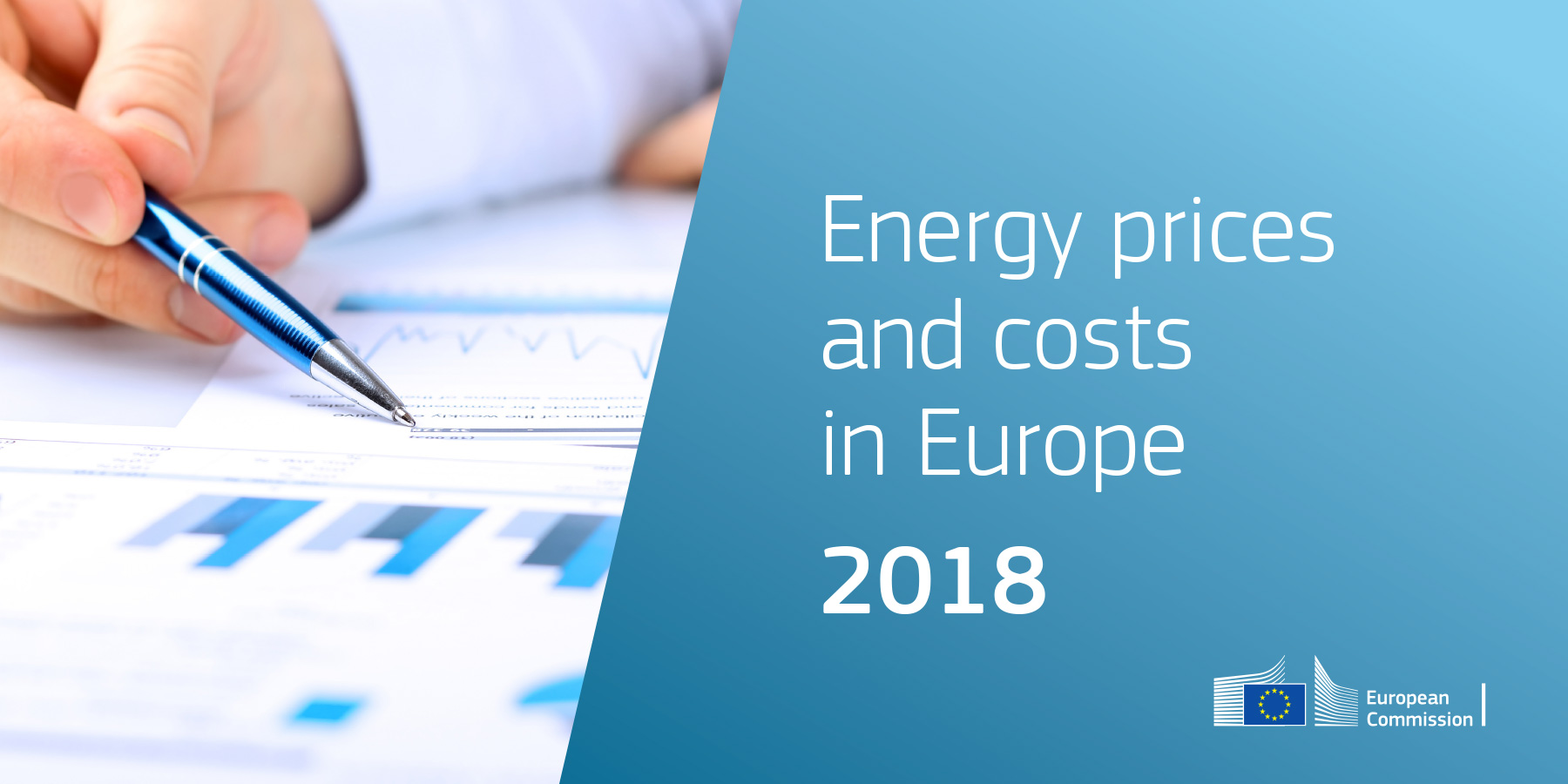
 In January 2019 the European Commission published the third report on energy prices and costs in Europe. Published every two years, this most recent report finds that wholesale energy prices have fallen in recent years due to increasing competition on wholesale markets from greater amounts of renewable energy, improved interconnections and a more integrated internal electricity market.
In January 2019 the European Commission published the third report on energy prices and costs in Europe. Published every two years, this most recent report finds that wholesale energy prices have fallen in recent years due to increasing competition on wholesale markets from greater amounts of renewable energy, improved interconnections and a more integrated internal electricity market.
The report also highlights how these lower supply costs, together with stable network tariffs, taxes and levies, enabled household electricity prices to fall in 2017 for the first time since 2008. However, the report also warns of the EU's ongoing high exposure to volatile and growing fossil fuel prices and notes that wholesale prices have started to rise again. Future electricity production costs are expected to increase for fossil fuel-generated electricity (due to import prices and the carbon price) and fall for renewables (linked to the decreasing costs of investment as technologies evolve), with the report suggesting that that electricity market prices could reduce the need for subsidising renewable energy technologies by 2030.
The EU remains heavily dependent on imports of oil and gas, and the increase in fossil fuel prices (especially crude oil) made the cost of EU energy imports in 2017 rise by 26% to EUR 266 billion. The increase in oil prices could have had a negative impact on EU growth (-0.4% GDP in 2017) and on inflation (+0.6%), the report estimates.
Figures for 2015 show that the share of household expenditure on energy (excluding transport fuels) continues to rise. Poorer households were the most affected, with the share of their overall spending which is dedicated to energy costs reaching 10.4%.
Energy costs for businesses fell from 2008 to 2015 in most of the sectors studied, with the most significant declines appearing in some energy intensive sectors.
Energy taxes - in particular excise duties on petroleum products - continue to be an important and stable source of revenue for the EU countries (on average nearly 5% of their total tax revenue). In 2016 national governments collected €280 billion (roughly 1.9% of EU GDP) through energy taxation. The report also considers fossil fuel subsidies (which did not decrease in recent years) in a context of rising energy subsidies to finance the energy transition (€170 billion in 2016).
Finally, it contains chapters on the impact of price regulation and the potential benefits of dynamic pricing.
Related documents
- 2018 report - Energy prices and costs in Europe
- 2018 Full report: Staff Working Document & Annex 1 | Annex 2 | Annex 3
- 2018 External Study (Trinomics) on Energy Prices, Costs and Subsidies – Final Report
- 2018 External Study (Trinomics) on Energy Prices, Costs and Subsidies – Annexes
Source: © European Union, 1995-2019

